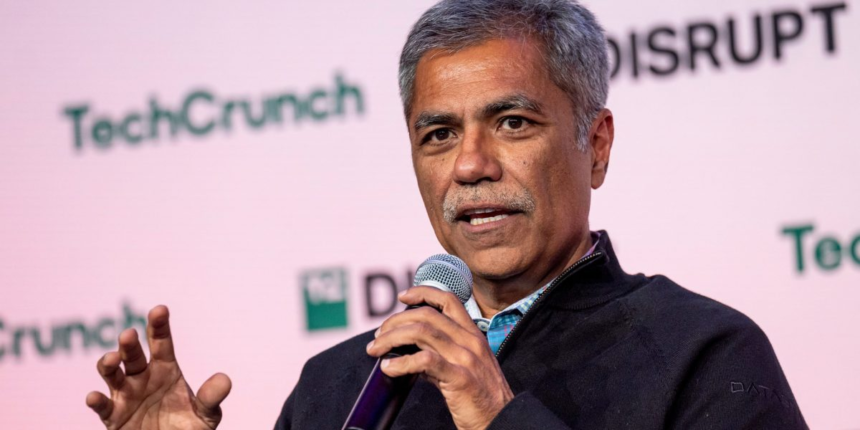His first order of business was moving from India to the States in 1983 before taking on “a bunch of computer classes” to prime himself for any role in the vicinity of the late Apple founder.
“I was the guy that got coffee for the guy that made coffee,” he laughs. “It didn’t matter what I did. Janitorial services, dishes—I was 20 yards away from Steve Jobs.”
Even if Jobs didn’t know who Kapoor was, by his own account, he still thinks that working in the shadows of an esteemed entrepreneur was a formative experience—one he even advises graduates to pay for.
“What I tell college graduates is to find a set of people you want to really work with, convince them that they need you, and then pay them to let you work for them,” he says, insisting the first four years of your career shapes your personality and professional trajectory.
“The experience you will get from working with really smart people will pay you dividends that you cannot imagine,” he says. “It’s not the company you work for, it is the individuals you work with that define you.”
That being said, Kapoor did go to college himself.
While others were at frat parties, Kapoor was juggling his education with running his own consulting firm, working in fast food chains, and interning at Jobs’ NeXT.
A skill Kapoor was quick to learn at just 22 years old was how to balance profit and loss.
“It was not a ‘nice to have’ for me, it was important that I made money because that’s how I paid for tuition,” he explains. “So if I didn’t make money, I couldn’t go to school.”
Looking back on his life, Kapoor describes it as a “hand-to-mouth existence” but says that there’s “nothing” like being your own boss to prepare you for leadership.
“Every individual goes through three different stages in their career. They are individual contributors, they manage people, and then they lead managers,” he shrugs. “So, I believe everyone has to go through that journey.”
“There’s no magic bullet here, you have to lead yourself, then you can lead a small team, and then you lead leaders, right? And I think it all comes down to how you think about leading yourself.”
Kapoor says he concentrated on the team’s success over his own contributions and nailed the execution.
“At the end of the day, belief [in one’s self] is cheap. You can read leadership books, and this and that. But if you don’t lead yourself that way, you will not be able to lead people.”
After orchestrating the sale of Gluecode to IBM for an undisclosed amount, Kapoor became the CEO of the analytics software Apigee in 2007.
Kapoor has one tip for priming a business for sale: Don’t.
“My take would be to focus on building a business, hiring great people, getting great customers, and then everything else happens around it,” he says.
Even now, he says that his motto is always: “We have an open-for-business sign, not a business-for-sale sign.”









